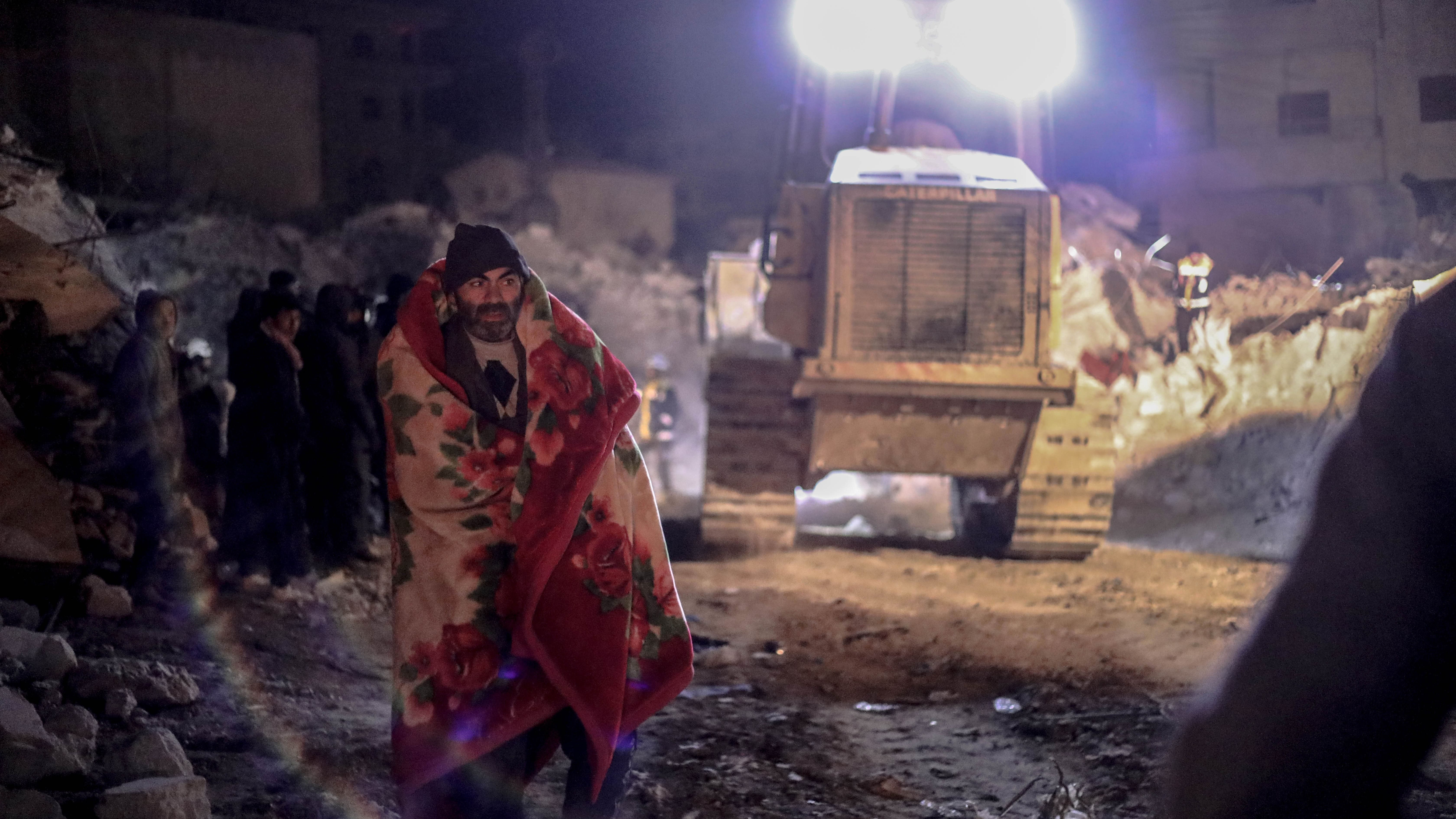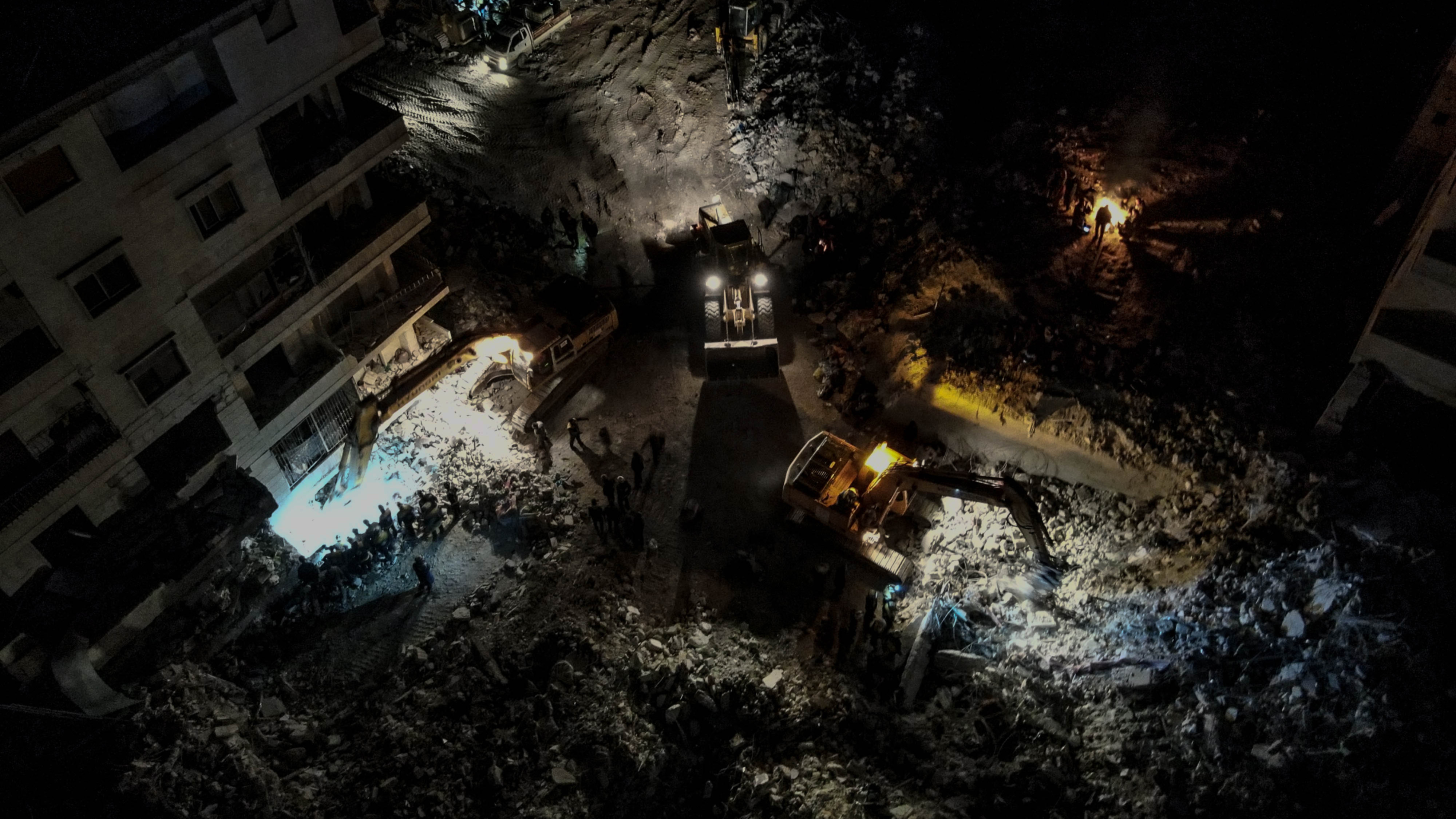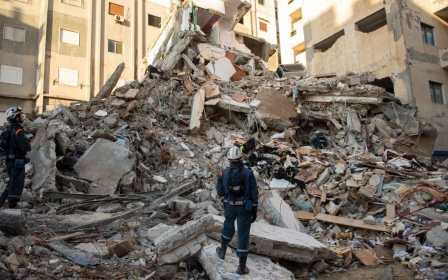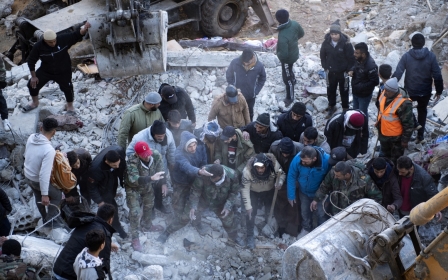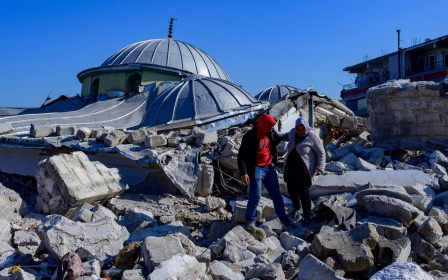Syria earthquake: Survivors in northwest region cling to hope as aid finally arrives
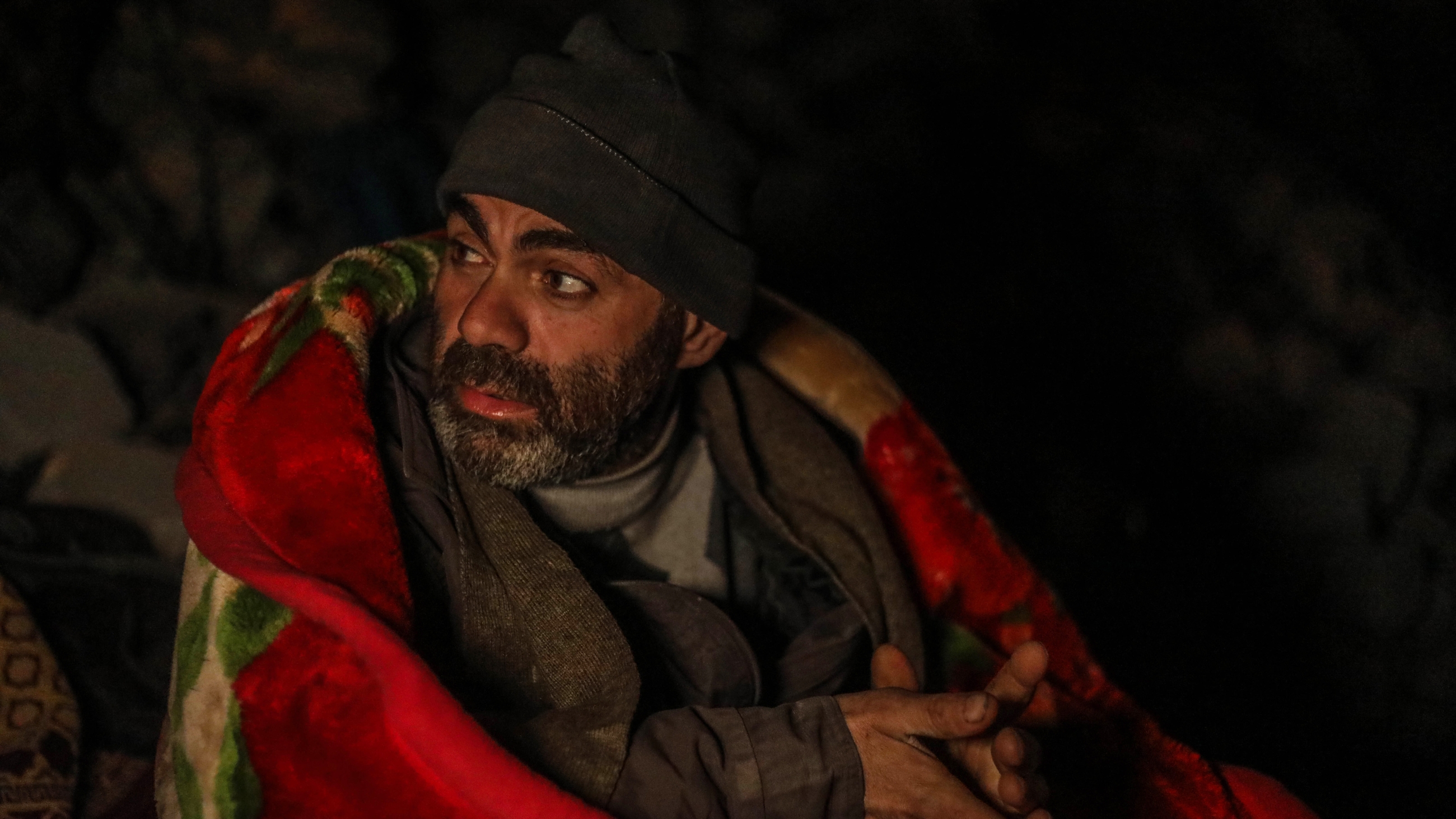
Sami Jaqir has been wandering back and forth outside his now-flattened home for days.
His wife and two children are trapped under rubble, and rescue workers are digging tirelessly to get them out alive.
"My children are under the rubble, may God protect them. I'm waiting patiently for someone to get them out," Jaqir tells Middle East Eye through WhatsApp.
It's the fourth day after the devastating quake, which has so far killed more than 22,000 people and affected over 20 million people in Turkey and Syria.
'When I tried to go back, the second earthquake started and the building fell on top of the family'
- Sami Jaqir, earthquake survivor
The weather is freezing in the opposition-held Salqin town in Idlib province, but Jaqir is still clinging to hope.
New MEE newsletter: Jerusalem Dispatch
Sign up to get the latest insights and analysis on Israel-Palestine, alongside Turkey Unpacked and other MEE newsletters
Wrapped in a blanket and standing near his destroyed home, he waits patiently.
"I was sleeping when my wife woke me up terrified, saying the earth is shaking," he says. "I thought it was just a small earthquake, like previous times, or as a result of Syrian or Russian bombardment.
"The shaking escalated, something abnormal was happening to the ground, I started hearing walls collapsing, so I tried to evacuate my children. I found one of my daughters in front of me and I picked her up and ran out, while telling the rest to follow me.
"When I put my girl in a safe place outside she was screaming, terrified. I promised her that I would come back with the rest of her siblings, but I couldn’t. When I tried to go back, the second earthquake started and the building fell on top of the family."
Jaqir is one of the millions of people in Syria who have been directly affected by the earthquakes.
Initial estimates say over 2,276 buildings have collapsed, though it is difficult to measure whether damage to some buildings is caused by previous Syrian government and Russian shelling, or due to the earthquakes.
More than 300,000 people have been displaced as a result of the quakes on Monday.
More dead bodies than aid
The devastation in the opposition-held northwest is compounded by a lack of good infrastructure and expertise in a region already suffering a humanitarian crisis caused by 12 years of war.
The territory is home to nearly four million people, half of whom live below the poverty line.
The UN Syria Commission of Inquiry called on Friday for a “comprehensive ceasefire to enable humanitarian workers and rescuers to reach those in need without fear of attacks".
The government of Bashar al-Assad on Friday gave international aid permission to enter the rebel-held areas through crossings under its control.
Assistance would arrive to those who need it most with the help of the UN, the Syrian Red Crescent and the International Committee of the Red Cross, Damascus said.
Prior to the announcement, the only path for international aid to arrive in rebel territory was through the Bab al-Hawa crossing between Syria's Idlib province and southern Turkey.
That crossing had been closed for several days due to the earthquake impacting guard officials in Turkey's Hatay province.
While aid for survivors in the aftermath is much needed in northwest Syria, the newly delivered packages will be of little help to volunteer rescue workers.
Experts say chances of finding survivors after 72 hours are rare, a period which passed on Thursday morning.
Most of those who will be pulled from under rubble in the coming days will likely be dead.
The volunteer Syria Civil Defence, known as White Helmets, continued searching for survivors on Friday in nearly 51 severely affected sites across opposition-held areas, despite the challenges.
They have also begun clearing rubble on main roads to allow aid to come in through the designated crossings.
Fourteen truckloads of UN aid were delivered through the Bab al-Hawa crossing on Friday, according to Anadolu Agency.
The Syria Civil Defence said on Thursday those were routine deliveries and don't carry equipment that can help in removing rubble.
The number of trucks entering the area carrying bodies of those killed by the earthquake in Turkey has so far been greater than the number of aid trucks.
An MEE contributor said nearly 700 bodies have arrived from Turkey so far.
Middle East Eye delivers independent and unrivalled coverage and analysis of the Middle East, North Africa and beyond. To learn more about republishing this content and the associated fees, please fill out this form. More about MEE can be found here.


